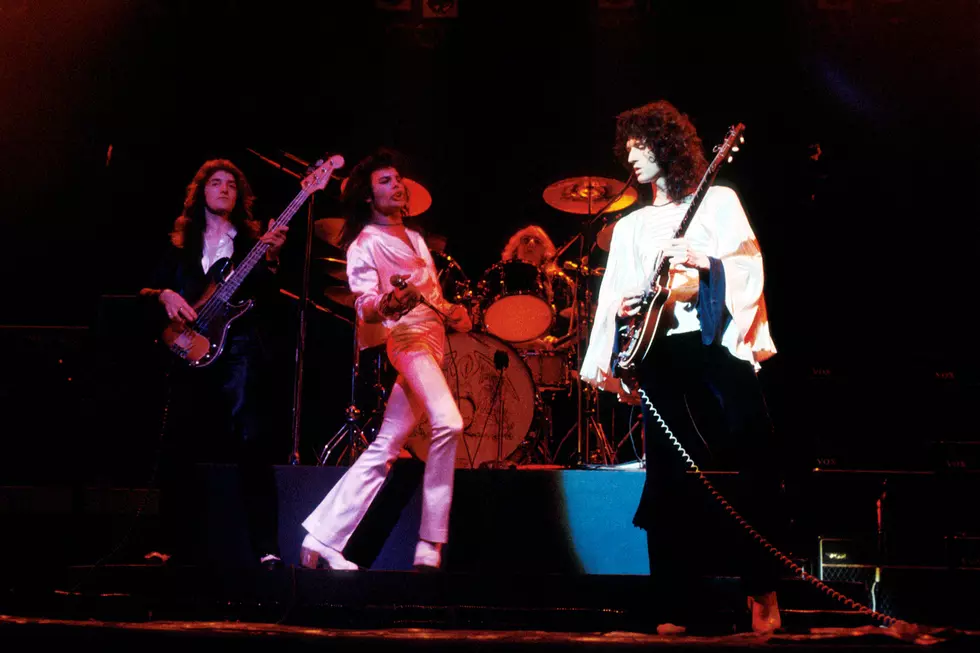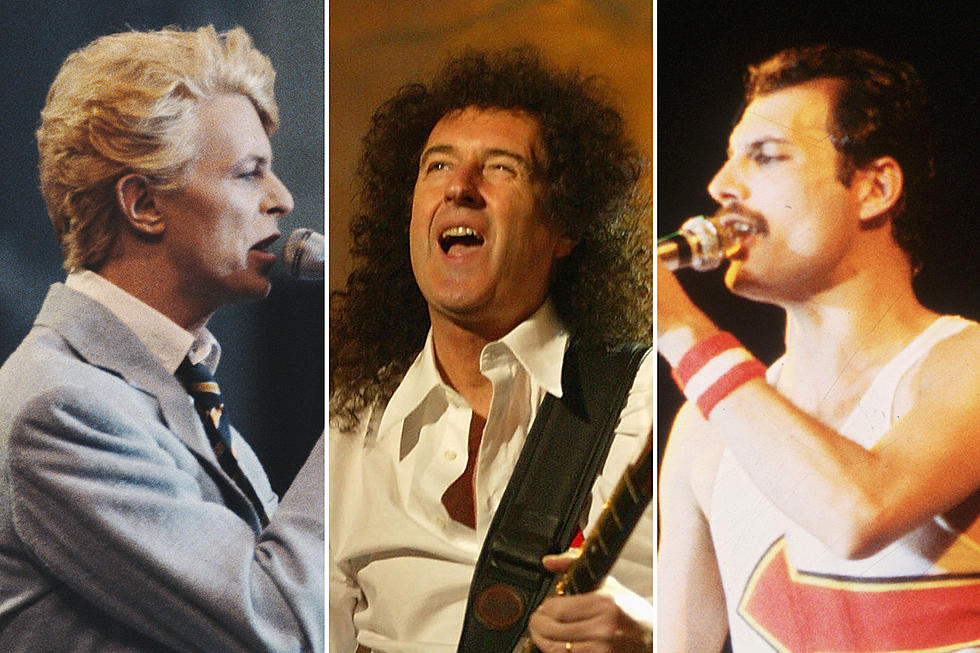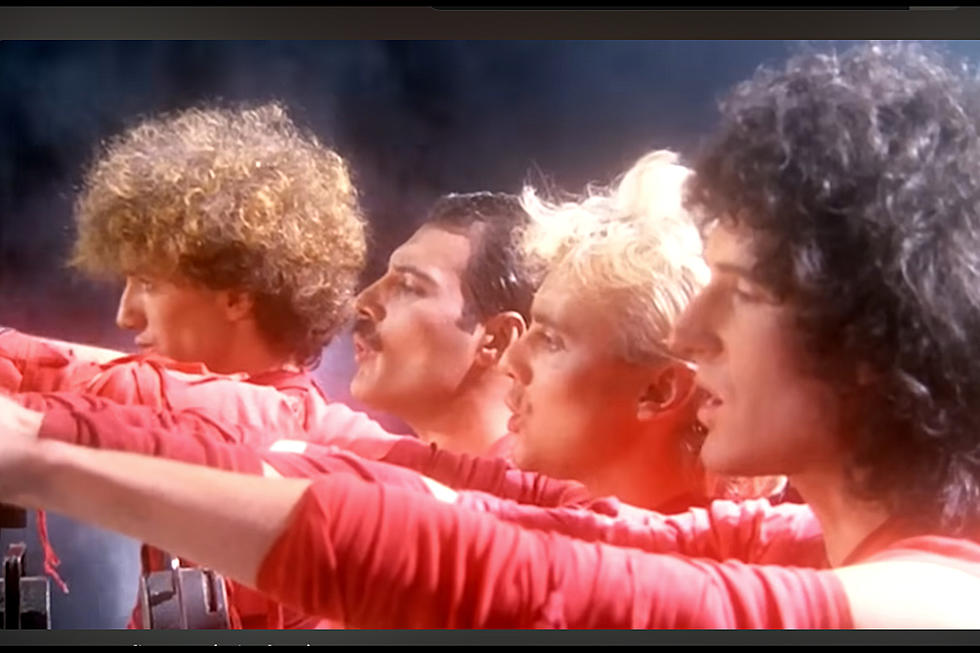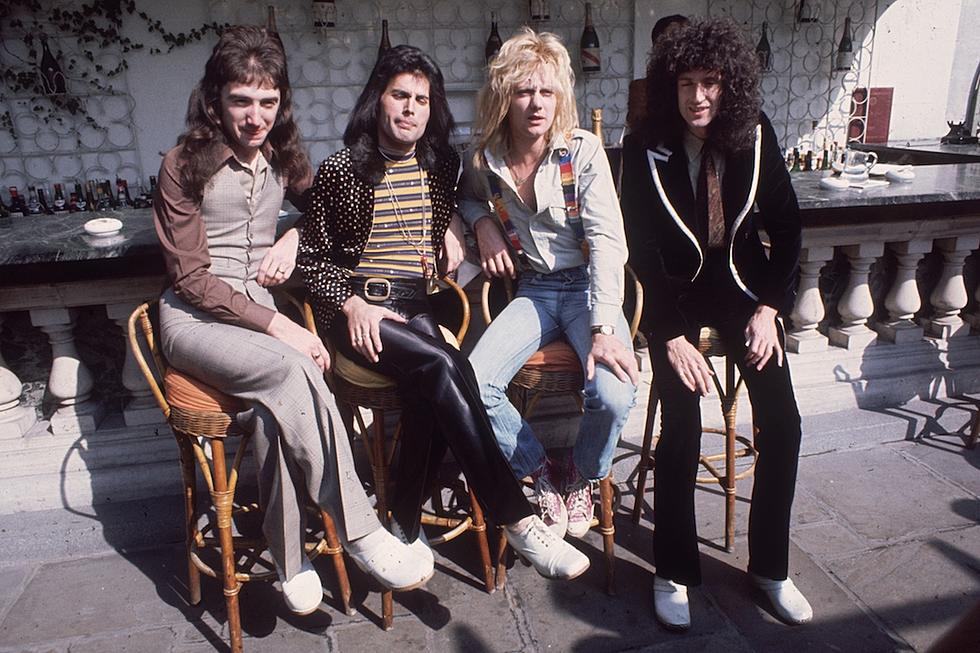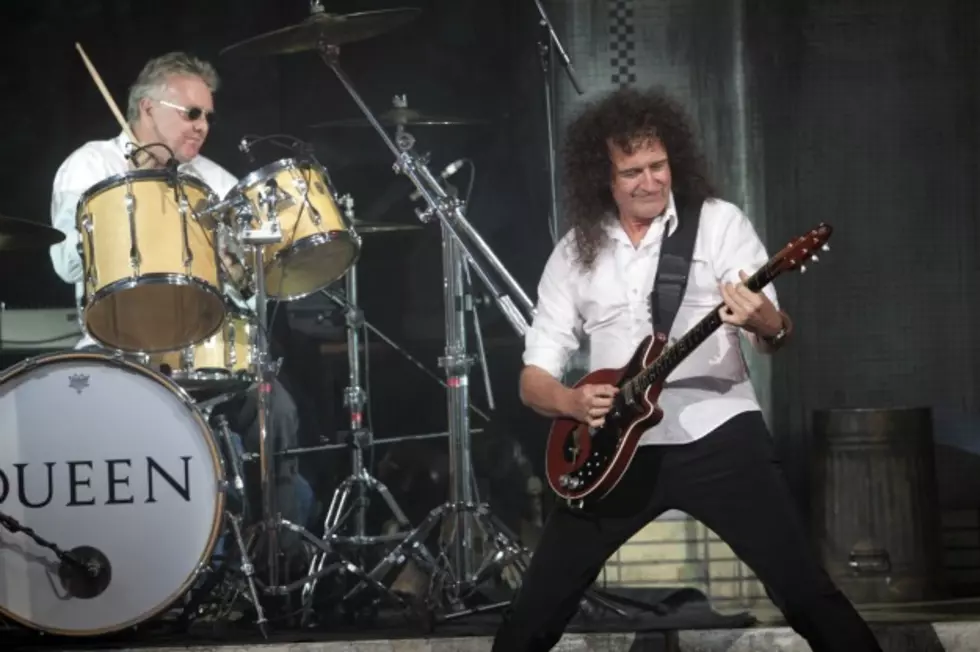
Top 10 Queen Albums
If there were any doubts, Queen certainly proved this year that they know how to throw the ultimate royal party. Celebrating their 40th anniversary as a group, the band recognized the milestone with a flurry of releases and events, not the least of which was a complete overhaul and expansion of their recorded output. The new reissues offer a fresh viewpoint on the band’s classic work, and on the 20th anniversary of the passing of iconic frontman Freddie Mercury, we’re taking a look at 10 of the best Queen albums:
- 10
'Innuendo'
(1991)Considered by most as the last proper Queen album, ‘Innuendo’ was recorded during the time when Mercury was in the final stages of his battle with the AIDS virus. Although Mercury’s illness was unknown at the time, he was clearly grappling with his own mortality. Listening after the fact, ‘These Are The Days Of Our Lives’ and ‘The Show Must Go On’ are clear cut examples of how Mercury put everything he still had into the recording of the album. ‘Innuendo’ is a brilliant final statement from Mercury and the members of Queen.
- 9
'Queen II'
(1974)The band’s second album involved a concept that split the material into two sides, ‘Side White’ and ‘Side Black.’ Appropriately, the darker material on the album occupied the ‘black’ side (all of which was composed by Mercury) while the lighter songs were on the ‘white side.’ The now-familiar cover image was etched in the minds of listeners when the band repurposed it for the ‘Bohemian Rhapsody’ video. ’Queen II’ found the group more focused on material like ‘Seven Seas Of Rhye’ that would be better suited for airplay. They took a more concise songwriting approach to achieve that goal, and also began to experiment with the multi-layered vocal recording technique that would become their signature.
- 8
'The Works'
(1984)After dabbling in a wide variety of styles (including dance and disco elements) with their previous ‘Hot Space’ album, ‘The Works’ found Queen returning to more familiar territory, although it was also their most electronic effort as a group. The mechanized sound of ‘Radio Ga Ga’ criticized the rapidly disappearing variety in radio programming of the time, and also had subtle nods to both ‘War Of The Worlds’ and Winston Churchill within the lyrics. ‘Machines (Or Back To Humans)’ featured Mercury in a vocal duel harmonizing with himself (ain’t technology great?)
- 7
'Jazz'
(1978)The diversity of ‘Jazz’ brought both praise and criticism, with journalist Dave Marsh writing in Rolling Stone that “Queen may be the first truly fascist rock band.” Certainly, they might have painted a bit of a target on themselves with the inclusion of ‘Fat Bottomed Girls,’ one of several future fan favorites included on the album (along with ‘Bicycle Race’ and ‘Let Me Entertain You’). Brian May revisited a trick he’d used previously on ‘Queen II,’ placing pieces of piano wire under the frets of his guitar to mimic the sound of a sitar on ‘Jealousy.’ When ‘Bicycle Race’ and ‘Fat Bottomed Girls’ were released as a double single, the band found a unique way to promote the songs, staging a nude all-female bicycle race. Can you imagine the headlines that promotion would have gotten today?
- 6
'Queen'
(1973)“No synthesizers.” That was the disclaimer on the sleeve for the debut album from Queen, who wanted to make sure that fans were well aware that each and every sonic moment of the album had been created by hand, thanks to multi-track recording. ‘Keep Yourself Alive’ was a raucous introduction to the guitar rock side of the group, and represented a triumphant moment for Queen, who had initially placed the track on a five song demo that nearly every record company passed on. Rolling Stone called ‘Keep Yourself Alive’ one of the 100 greatest guitar songs of all time, praising it for having “an entire album’s worth of riffs crammed into a single song.” ‘My Fairy King’ contains the lyric “Mother Mercury, look what they’ve done to me,” which reportedly gave the former Freddie Bulsara the idea to change his name to “Mercury.”
- 5
'Sheer Heart Attack'
(1974)‘Sheer Heart Attack’ represented a shift in direction from Queen, away from the progressive sound of their earlier material and firmly into rock territory, securing their first Top 20 album in the process. The frenetic metal pacing of ‘Stone Cold Crazy’ made it an obvious influence for Metallica, who stomped through their own version years later. As Queen were working on the piano-based ‘Killer Queen’ (which found Mercury alternating between two different pianos!), May was in the hospital, so they left spaces for him to contribute his guitar parts once he felt better. In fact, Brian was ill for a good portion of the recording of ‘Sheer Heart Attack,’ so a number of his contributions were recorded this way, although you’d never know it from listening to the final results.
- 4
'A Day At The Races'
(1976)Queen took the production reins for the first time on ‘A Day At The Races’ and judging from the sound of stadium rockers like ‘Tie Your Mother Down’ (composed at a time when May was working on his PhD in Astronomy), and the gospel-like tones of ‘Somebody To Love,’ it was clear that Queen would be just fine as captains of their own ship. The swirling Shepard tone that opens ‘Tie’ at the top of the album makes a repeat appearance to end the album at the conclusion of ‘Teo Torriatte,’ which also featured two choruses sung in Japanese in tribute to the group’s large fanbase in that countr.
- 3
'The Game'
(1980)The now-famous bass line from bassist John Deacon on ‘Another One Bites The Dust’ (which he also wrote) helped the Queen boys strut to their first and only number one album in the U.S. with ‘The Game.’ The finger-snapping doo-wop vibe of ‘Crazy Little Thing Called Love’ shouldn’t have sounded so natural considering that it was 1980, but it was somehow a very welcome time warp. The album was a true collaborative effort for the group, with all members pitching in relatively equally on the songwriting and new producer Mack helping the band streamline their recording process. The record also featured the band’s first use of synthesizers on the opening track ‘Play The Game.’
- 2
'News Of The World'
(1977)Accused by some of resting on their laurels after taking over album production duties on ‘A Day At The Races,’ Queen countered with ‘We Will Rock You/We Are The Champions,’ the opening one-two shot that launched ‘News Of The World.’ Although ‘Rock’ was composed by May and ‘Champions’ penned by Mercury, it now seems unnatural to hear one without the other. ‘Sheer Heart Attack’ (begun initially during sessions for the album of the same name) was Roger Taylor’s jab at the punk rock musicians who had taken shots at Queen for being overly extravagant. Meanwhile, ‘It’s Late’ featured some finger tapping from Brian May a short time before Eddie Van Halen would take the same technique and inspire countless generations of future guitar players.
- 1
'A Night At The Opera'
(1975)Without question, ‘A Night At The Opera’ is the crown jewel of Queen’s catalog. Had it been released today, it might not have been as impressive to the Pro-Tools generation, but for the time period, Queen maximized every ounce of technology (and a whole lot of money, too) to create an album that was completely out of this world. ‘Bohemian Rhapsody’ was Freddie Mercury’s brainchild. It was conceived in sections, with the members recording their parts individually without even knowing the context of how they would be utilized in the final version. Discussing the album on the occasion of its 30th anniversary, Brian May reveals that there was a lot of pressure going into its recording, and stating that if it had not been successful, it’s very likely that the group would have disbanded. Happily, ‘A Night At The Opera’ proved to be a hot ticket and its legacy endures to this day.
More From Ultimate Classic Rock

